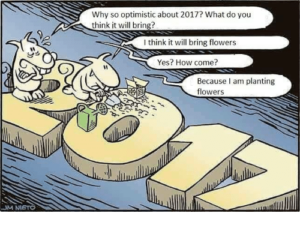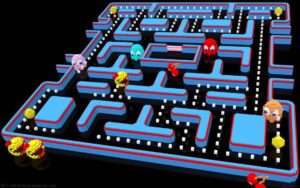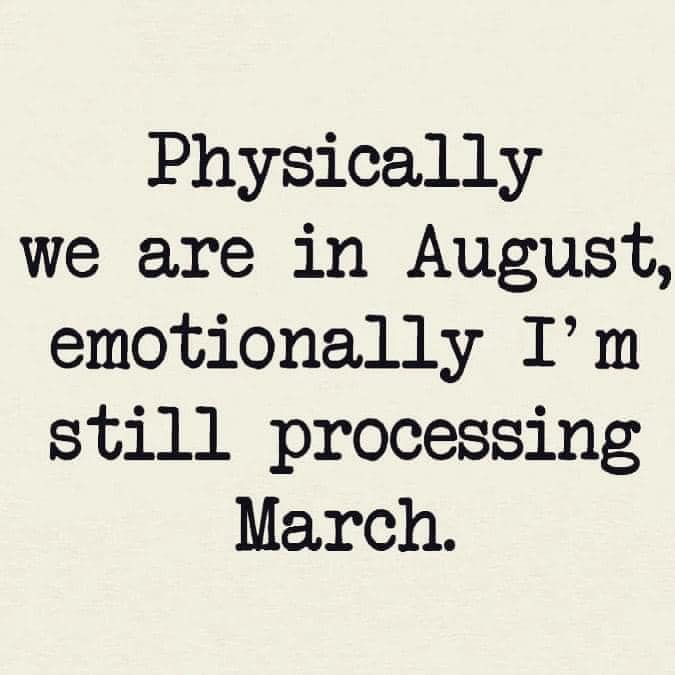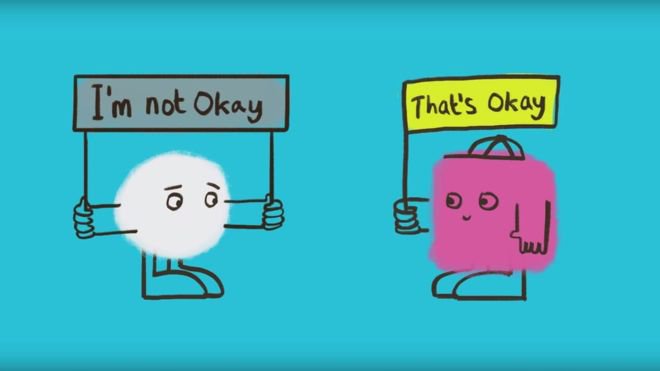Gamify your mental health to get through the tough times
For any number of reasons, our mental health can take a hit from time to time. It can sap all our motivation, and toxic productivity culture (What Is Toxic Productivity and How Do I Avoid It?) and social media crafting (Why Generation Y Yuppies Are Unhappy) can exacerbate our feelings of inadequacy. Just keeping on top of daily tasks can feel impossible. However, there are ways to readjust our approach in order to help us feel better about ourselves and still achieve plenty without being overwhelmed.
Mental health is health
We have come a long way in being able to talk openly about mental health, but the attitude that it is separate from physical health, or not real because “it’s all in your head” is still out there. Your brain is an inextricable part of your body. Mental health is health, and there are varying types of illness, levels of severity and various ways to treat it. I like to think of the advice in this post as similar to physiotherapy: it might cure mild symptoms, alleviate more serious ones, or just take the edge off. It can work in conjunction with medication but is no substitute for professional help. I am by no means an expert. These are just methods that help me and hopefully will help you if you need it. Much like physiotherapy; if it makes you feel worse, stop and speak to a medical professional.
We’re all a little disappointed that we aren’t Beyoncé
The most important thing to bear in mind is, as the above Wait But Why article outlines, happiness = reality – expectations. When your mental health is suffering, you need to strip everything right back and start again. The key to happiness (or at least contentment in this context), much like the unofficial motto of some venues I’ve worked in, is to “lower your expectations”. If you’re trying to take over the world but you can’t even bring yourself to get dressed, you’re just going to make yourself feel awful. Be honest with yourself about what you can achieve. Yes, you have the same number of hours in the day as Beyoncé, but you haven’t had a small army of people working for you since you were sixteen. Shut that hustle culture noise down, now is not the time for it.
Stop comparing yourself to others altogether. Your hyper-productive friend won’t know if you mute their Facebook feed about the qualifications they’re getting, the sourdough they’re baking and the Arabic they’re perfecting. Most social media feeds are biased towards the better aspects of life, so you’re comparing your every day to their highlights, and it’s toxic. However, being kind to yourself doesn’t mean you should take the rest of your life off. If you truly can’t get out of bed, ok, try again later. If you can and you just don’t want to, you’re only cheating yourself. Self-care doesn’t always mean indulging yourself. It also means doing the challenging things that you know are good for you.
Plan ahead
Being told to plan ahead might not sound like the most useful advice if you’re already struggling, but if you can, do it. Humans are bad at making good decisions in emergencies. Paradoxically, a cocktail of hormones shut down the brain’s higher functions during the fight or flight response and 80-90% of people freeze or carry on like nothing’s happening during life-threatening situations (What not to do in a disaster and How to survive a disaster). It’s very difficult to form new neural pathways during this response, so the people who do the best are ones who have visualized a plan for what they would do in case of emergency and can fall back on that memory. “Typically, survivors survive not because they are braver or more heroic than anyone else, but because they are better prepared.” This is why I always, always, consciously think through the path to my closest emergency exit every time I board a plane, and why it’s good to have a plan for when you might struggle with your mental health.
Of course, bouts of mental illness are less immediate and longer-term than something like a plane crash, but we are still undergoing stress and operating at reduced capacity. Add in the decision fatigue that our always-on, infinite-choice culture causes and our willpower can disappear. Putting coping mechanisms in place beforehand can help you to deal with it better from the start. I highly recommend everyone read up on cognitive behavioural therapy, whether you experience mental health issues or not. It can really help you understand your mind’s processes and take control of your thoughts and beliefs and could help you to help someone else who is unwell.
You can put together an emergency kit, with vitamins, healthy food with a long shelf life like tinned fish or frozen prepared vegetables, mementos from happy times and anything else that will get you through the day. If you can, automate your recurring payments and put plenty of reminders in your calendar for appointments, deadlines etc. so you don’t have to worry about remembering it all. Knowing you have everything you need to get by will leave you with more energy and focus for the important stuff when things get difficult.
Come up with a list of default decisions, so you don’t have to agonise over inconsequential things when brainpower is at a premium. If you don’t want anything in particular for breakfast, it will be cereal. If you don’t know what to wear, make it jeans and the t-shirt that’s at the top of the drawer. You don’t have to go full Steve Jobs on this (Steve Jobs Always Dressed Exactly the Same. Here’s Who Else Does), but if you don’t have any strong feelings about something, just do the default until you do. There are more important things to think about.
Make a Scotty schedule

“Find something small that you can control, and put steps in place for a positive outcome that you can look forward to. Artist: JM Nieto”
I’m a big fan of the Scotty Principle, especially when it comes to dealing with clients at work: named after the engineer from Star Trek, the idea is you generously overestimate how long a task will take, for example finding a fault in a signal chain. This allows extra time for any unforeseen complications or further issues, and if it is a straightforward fix you seem like a miracle worker. I don’t see it as dishonest, just realistic. People are much happier about a twenty-minute delay if they thought it would take half an hour than if they were promised ten minutes. You can even do it to yourself: instead of trying to smash through your entire to-do list in a day and feeling like a failure when you don’t manage it, really think about how long each item takes, then allow 50%-100% more time. If you finish early, great! More time for something else. If not, you’ve still achieved what you set out to do. If you continually find yourself falling behind, just increase your estimates next time.
Following on from the default decisions approach, make a loose default day plan, but don’t worry if you don’t stick to it. If something comes up you can still be flexible, but it’s much easier to do something if it’s already scheduled in than if you have to think about what you should do and persuade yourself to do it. You’re more likely to go to the gym on a Wednesday morning if Wednesdays are gym days than if you wait until you spontaneously feel like working out. If you’re anything like me, that day might never come.
Break it down
Once you’ve laid the groundwork, you can take each day as it comes. Treat it like a game to keep yourself motivated: give yourself points for every single thing you achieve. Start with the absolute basics. Are you still here? Good. You’ve already won the game for today. Anything else you do is a bonus. If you ever feel that you might not be here tomorrow, talk to someone. I know it’s hard, but it will help. Take your friends who keep posting those “I’ll always listen” statuses up on their offer. You might think that they don’t mean you, or you’d just be wasting their time, but I guarantee you they do mean you and you are worth their time. If you don’t know anyone you can reach out to, call, or message a mental health charity or suicide helpline. Talking to you is exactly what those people want to do, that’s why they’re there.
Next are the bonus rounds. There’s a technique in weightlifting called “training to failure” you keep doing reps of a challenging weight until you can’t lift anymore. Used in moderation, it’s one of the most effective ways to build muscle and improve strength. Using a weight you can lift comfortably will only ever maintain your current strength, you need to keep pushing yourself to grow. The nice thing about this technique is that failure is not only expected but an integral part of the approach. You just see if you can do one more rep, and if you can’t you’ve completed the exercise successfully.
So when it comes to your daily life, break everything down to the smallest components possible. Getting started can be the hardest part, but it’s much easier if the task is tiny. Don’t tell yourself you’re going to do all the admin that’s been building up, don’t even aim to clear all your emails. Start with sorting one email. Then see if you can do another, and keep going until you reach your limit. You might be surprised by how much you can trick yourself into doing. Break your time into smaller chunks too. If you wake up feeling terrible, don’t write the whole day off straight away. Leave it an hour then try again. If you can’t face a task, do something else and come back to it maybe twenty minutes later. If you find your energy dipping, put on some inspirational music like this playlist, look at some cute kitten photos or whatever you need to give yourself a boost, then try again.
When you’re done, don’t berate yourself for not doing more, congratulate yourself for how much you did do. I find keeping a “done” as well as a “to-do” list much more motivating than just deleting stuff from my to-do list. It helps to keep track of everything you’ve achieved instead of it disappearing into the ether, leaving you disappointed by how much is left on the list. Much like training to failure, you shouldn’t push yourself to your limit for every single task. Use it in moderation and combine it with rest periods where you go a bit easier on yourself. You’re in this for the long haul, you don’t want to burn yourself out. Don’t forget that there is absolutely no shame in asking for help, too. Your loved ones will probably be glad to have something practical that they can do for you.
Points mean prizes

Ms Pac-man, by NES–still-the-best.
Gamification is a very effective tool for making things more fun and engaging. Earning points can give you little dopamine hits throughout the day and motivate you to make progress you might not otherwise have made. Apps like Zombies, Run! and Superbetter turns exercise and mental health improvement, respectively, into games to help users, but you can make your own one up tailored to your situation. Set yourself small short-term goals and larger long-term ones, while remaining realistic about your capabilities. When you reach a goal, reward yourself accordingly. If you finish your day’s tasks on time, give yourself an hour playing a video game. If you get a month-long project done, treat yourself to a night at the movies. Try to base your rewards around things you have healthy relationships with. If you have an emotional dependence on spending money don’t promise yourself a shopping spree because it will just make you feel worse in the long run. Pre-portion your incentive (one ice-cream, $20, one hour watching TV), and then enjoy it guilt-free, because you know you budgeted for it and you’ve earned it. Having something to look forward to is a great motivator too, and can make you feel better about the future.
Keep going
When you’re playing a game, it’s tempting to compare your current score to your personal best and try to beat it. If you have the drive to do that today, that’s great, but you shouldn’t expect to earn a higher score every single day. Rest is an integral part of growth and just as important as pushing yourself. Getting fewer points than usual doesn’t mean you aren’t progressing. If a car slows down it’s still getting closer to its destination. Don’t get overwhelmed by the situation and give in. You don’t have to be better than yesterday, you just have to be better than now. And if you can’t do that now, you can try again later. You will get there just the same.





